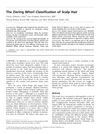 August 2003 in “Dermatologic Surgery”
August 2003 in “Dermatologic Surgery” Craig Ziering created a system to classify scalp hair patterns, important for improving hair restoration surgery results.
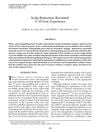 December 2002 in “International Journal of Cosmetic Surgery and Aesthetic Dermatology”
December 2002 in “International Journal of Cosmetic Surgery and Aesthetic Dermatology” Scalp reduction surgery is safe and effective for certain patients with hair loss, leading to dense hair coverage and high satisfaction.
 July 2002 in “Hair transplant forum international”
July 2002 in “Hair transplant forum international” The document lists common and scalp-specific lesions, emphasizing the need for hair restoration surgeons to recognize these and refer patients to a dermatologist if necessary.
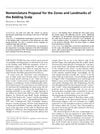 April 2001 in “Dermatologic Surgery”
April 2001 in “Dermatologic Surgery” Michael L. Beehner proposed a standardized naming system for balding scalp areas to help hair restoration surgery.
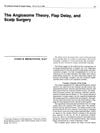 December 1994 in “The American Journal of Cosmetic Surgery”
December 1994 in “The American Journal of Cosmetic Surgery” Understanding the scalp's blood flow and using delay techniques can improve the success of hair restoration surgeries.
 November 1993 in “Hair transplant forum international”
November 1993 in “Hair transplant forum international” Scalp reduction surgery can provide significant benefits.
 January 1983 in “Journal of The American Academy of Dermatology”
January 1983 in “Journal of The American Academy of Dermatology” The book is a valuable resource for understanding hair and scalp problems but could be updated with more information on certain conditions.
January 1959 in “Acta medica Scandinavica” A balanced diet with essential vitamins, especially B-complex, prevents hair loss.
September 2022 in “Medical Mycology” Scalp fungi and sebum differences may affect hair loss in men.
 August 2003 in “International Journal of Cosmetic Surgery and Aesthetic Dermatology”
August 2003 in “International Journal of Cosmetic Surgery and Aesthetic Dermatology” Fiber implants effectively treat permanent hair loss with few complications.
 30 citations,
October 2010 in “Journal of The American Academy of Dermatology”
30 citations,
October 2010 in “Journal of The American Academy of Dermatology” The conclusion suggests a possible link between iron levels and hair health in women, recommending further research on iron supplementation for hair loss.
 16 citations,
December 2012 in “The Clinical Journal of Pain”
16 citations,
December 2012 in “The Clinical Journal of Pain” Chronic scalp pain in trichodynia involves both body-wide and localized increased pain sensitivity.
 14 citations,
September 2016 in “Journal of Cutaneous Pathology”
14 citations,
September 2016 in “Journal of Cutaneous Pathology” The document concludes that new methods improve the accuracy of diagnosing scalp alopecia and challenges the old way of classifying it.
11 citations,
January 2013 in “International Journal of Trichology” Emotional factors are crucial in treating and preventing scalp neurodermatitis and hair loss.
 7 citations,
December 2002 in “PubMed”
7 citations,
December 2002 in “PubMed” The scalp has a natural speckled pattern of increased pigment around hair follicles, possibly linked to local hormone production.
 6 citations,
January 2018 in “Journal of Cellular Physiology”
6 citations,
January 2018 in “Journal of Cellular Physiology” Human scalp fat stem cells showed improved cartilage-like development on a special scaffold with freeze-thaw treatment.
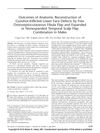 6 citations,
June 2016 in “Journal of Craniofacial Surgery”
6 citations,
June 2016 in “Journal of Craniofacial Surgery” Reconstructing lower face gunshot injuries with a fibula and scalp flap is effective and gives good long-term results.
 5 citations,
May 2020 in “Pharmaceutical Research”
5 citations,
May 2020 in “Pharmaceutical Research” Heat and chemicals improve finasteride delivery to scalp and hair follicles, potentially enhancing treatment for hair loss.
4 citations,
January 2011 in “European journal of dermatology/EJD. European journal of dermatology” A boy had a rare scalp condition with thickened skin and different-colored hair.
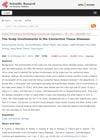 2 citations,
January 2011 in “Journal of Cosmetics, Dermatological Sciences and Applications”
2 citations,
January 2011 in “Journal of Cosmetics, Dermatological Sciences and Applications” Connective tissue diseases can affect the scalp.
2 citations,
September 1997 in “Archives of Dermatology” 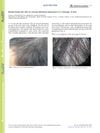 1 citations,
January 2018 in “Acta dermato-venereologica”
1 citations,
January 2018 in “Acta dermato-venereologica” A teenager's hair with alternating white and dark bands, known as Pili annulati, is a genetic condition that is usually harmless and often considered attractive.
1 citations,
May 2011 in “Hair transplant forum international” Injectable ACell with blood serum/PRP may slow hair loss and regrow thinning hair.
 January 2025 in “British Journal of Dermatology”
January 2025 in “British Journal of Dermatology” Long scalp hair evolved for cooling and social signaling.
 November 2023 in “Dermatologic therapy”
November 2023 in “Dermatologic therapy” The scalp serum reduced scalp discomfort and symptoms without affecting skin moisture loss.
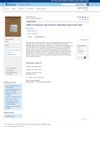 October 2023 in “Facial Plastic Surgery”
October 2023 in “Facial Plastic Surgery” Beard hair is the best for body hair transplants, but the procedure is complex and requires experienced professionals.
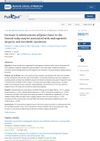
Thicker scalp fat may link hair loss with metabolic syndrome.
 April 2023 in “Journal of Investigative Dermatology”
April 2023 in “Journal of Investigative Dermatology” ALRN-6924 can protect hair follicles from chemotherapy damage by temporarily stopping cell division.
 November 2022 in “Journal of Investigative Dermatology”
November 2022 in “Journal of Investigative Dermatology” Growth hormone-releasing hormone (GHRH) boosts hair growth and human scalp hair follicles have their own growth hormone system.
 May 2022 in “Hair transplant forum international”
May 2022 in “Hair transplant forum international” Hair restoration should include the parietal eminence area for better balance in frontal and lateral profiles and to improve the head's contours.
























